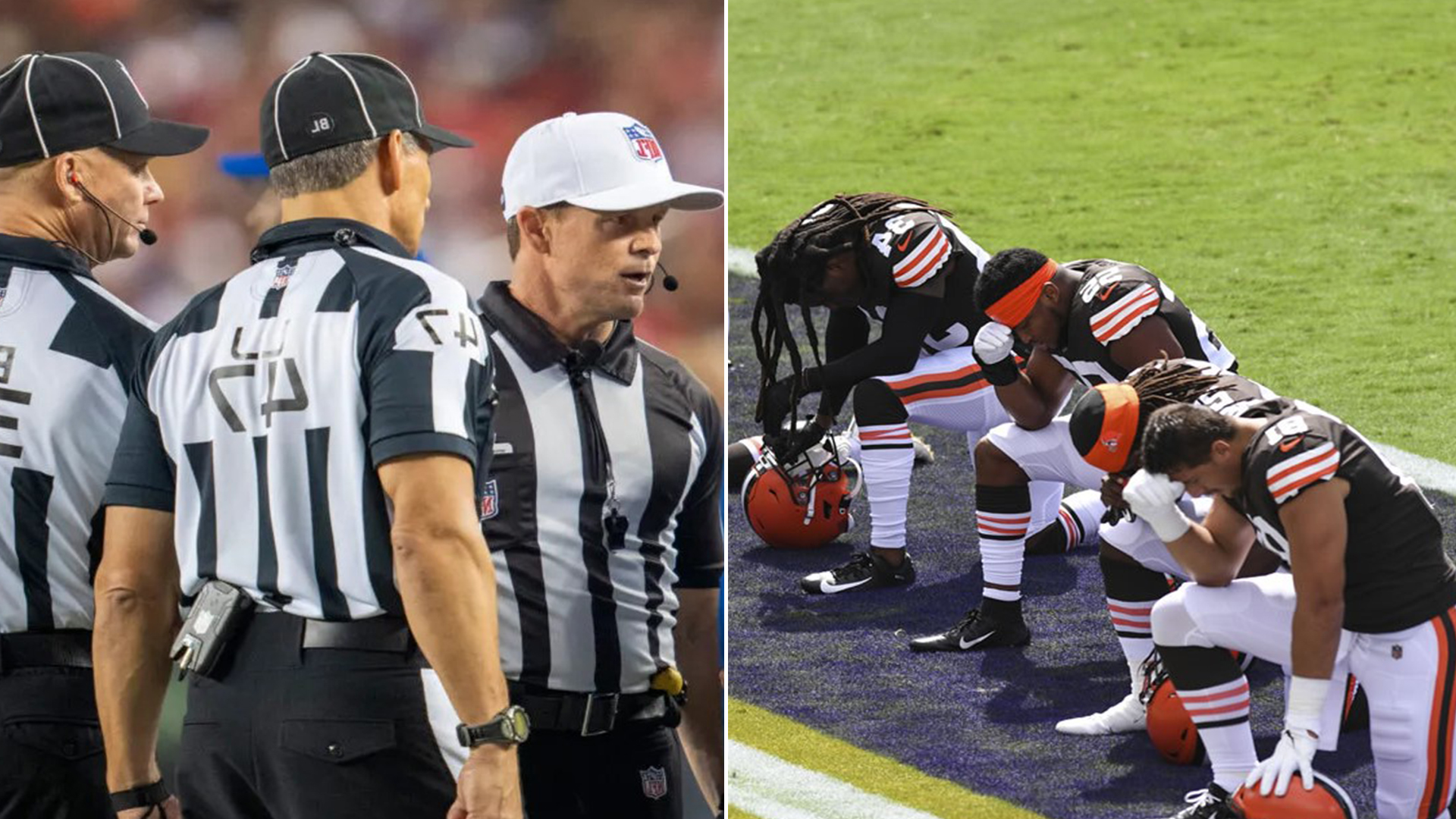In a controversial move that has sent shockwaves through the sports community, NFL referees disqualified ten players for kneeling during the national anthem last week. This unprecedented decision has reignited debates surrounding player protests, free speech, and the role of sports in social issues.
The incident occurred during a high-profile matchup that drew national attention. As the players lined up for the anthem, several athletes took a knee, a gesture originally popularized by former quarterback Colin Kaepernick in 2016 to protest racial injustice and police brutality. While kneeling has become a symbolic act for many athletes advocating for social change, the referees’ decision to disqualify the players marks a significant escalation in the league’s response to such protests.
In the wake of the disqualifications, reactions have been swift and polarized. Supporters of the players argue that kneeling during the anthem is a legitimate form of protest and an exercise of free speech. They contend that the NFL should embrace these acts as part of the ongoing conversation about racial inequality in America. Many fans took to social media to express their outrage over the decision, calling it an attack on players’ rights to peacefully protest.
On the other hand, critics of the protests assert that kneeling during the anthem disrespects the sacrifices made by military personnel and undermines the spirit of the game. Some fans have long believed that the field should remain a neutral ground, devoid of political statements. The disqualifications have resonated with this viewpoint, garnering support from those who argue that the NFL should prioritize unity and patriotism over individual expression.
The NFL has faced scrutiny for its handling of player protests in recent years. Following the public outcry surrounding Kaepernick’s initial protest, the league implemented various policies aimed at addressing player conduct during the anthem. However, the recent disqualifications mark a new chapter in this ongoing saga, as the league appears to be taking a harder stance on the issue. Critics argue that this shift could create a chilling effect, discouraging players from speaking out on social justice issues.
As discussions unfold, players and coaches are being asked to weigh in on the ramifications of this decision. Some coaches have expressed their disappointment, stating that the league should support players who wish to use their platform to advocate for change. Several players have also spoken out, emphasizing that their actions are rooted in a desire to raise awareness about critical issues affecting marginalized communities.
The disqualifications have also sparked a broader conversation about the intersection of sports and politics. Athletes today are increasingly using their platforms to address societal issues, from racial equality to climate change. The NFL’s response to these protests may influence how other leagues and organizations handle similar situations in the future.
Looking ahead, the implications of this decision remain to be seen. Will the NFL stand firm on its policy, or will it reconsider its approach to player protests? As the season progresses, fans, players, and commentators will be watching closely to see how this situation evolves.
Ultimately, the disqualification of ten players for kneeling during the anthem serves as a powerful reminder of the complex relationship between sports, politics, and social justice. As the nation grapples with these critical issues, the NFL finds itself at a crossroads, forced to navigate the demands of a diverse fan base while addressing the moral imperatives of the moment. The coming weeks will likely shed more light on how the league chooses to respond to this contentious issue and what it means for the future of player activism in professional sports.
